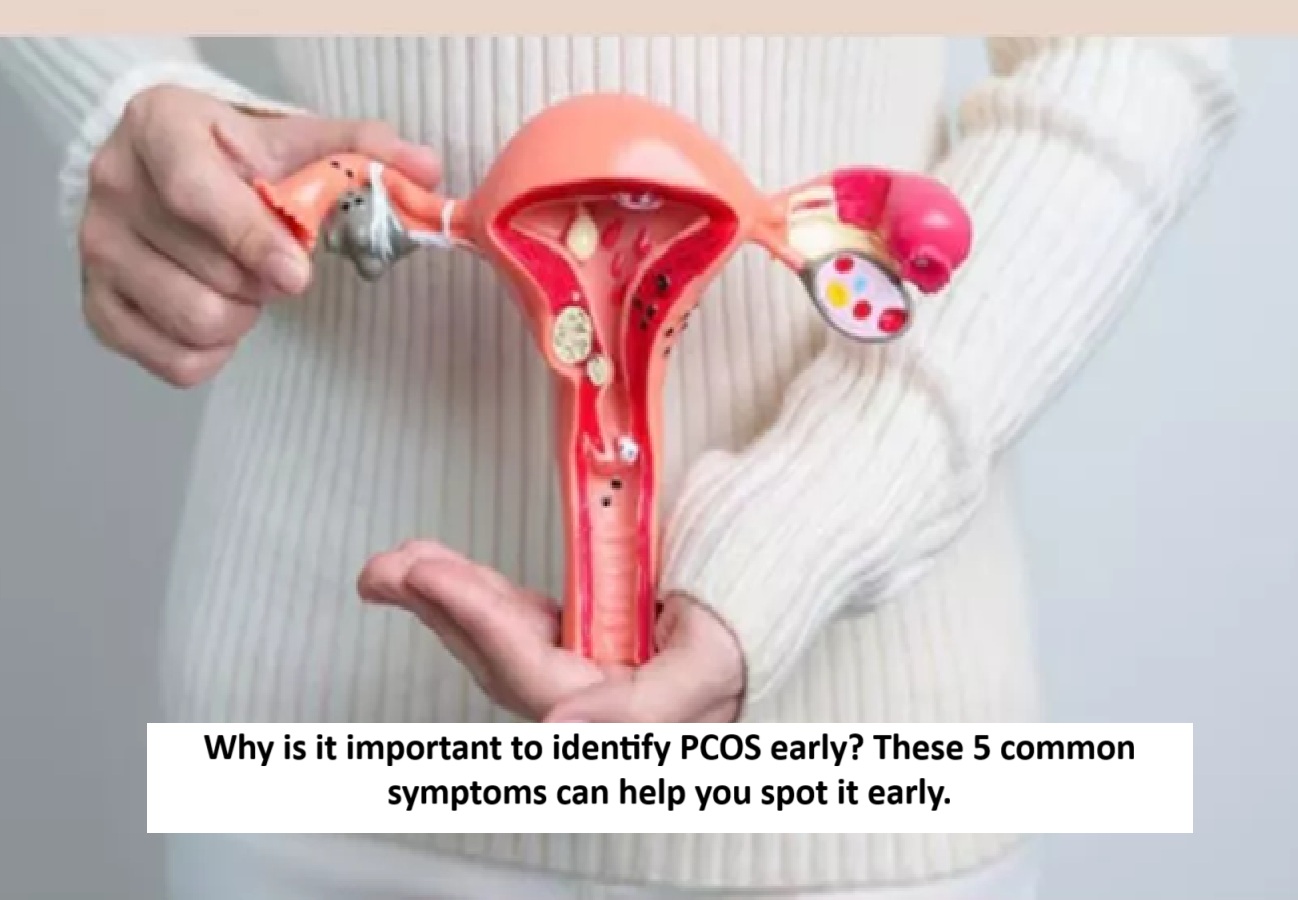
News Topical, Digital Desk : Polycystic ovarian syndrome (PCOS) is one of the most common hormonal problems in women. It's not just about menstrual irregularities, but rather a condition that impacts overall health. This problem affects many women worldwide.
Yet, people often ignore its symptoms (PCOS Symptoms), making it difficult to diagnose in time. If PCOS isn't detected early, it can lead to many complications. Let's talk to Dr. Aastha Gupta (Senior IVF Consultant and Infertility Specialist, Obstetrician & Gynecologist, Delhi IVF, New Delhi) about its symptoms and the potential complications if it's not detected early. Let's find out what she has to say.
What is PCOS?
PCOS is a hormonal disorder in which a woman's ovaries produce more androgens, or male hormones, than normal. This can cause small cysts to form in the ovaries and affect ovulation.
Common symptoms of PCOS
- Irregular periods – periods that don't come or come very late.
- Difficulty conceiving – eggs are not released regularly.
- Weight gain – especially accumulation of fat around the stomach.
- Acne – Problem of constant pimples due to hormonal imbalance .
- Excessive hair – abnormal hair growth on the face, chest, or body.
Women often ignore these symptoms, considering them normal, but these can lead to major health problems in the future.
What can happen if it is not identified in time?
It is wrong to consider PCOS a mild problem, as it can lead to serious diseases in the long run.
- Infertility – Lack of regular ovulation can be a major cause of infertility in women.
- Metabolic disorders – Women with PCOS have a higher risk of insulin resistance, type 2 diabetes, and obesity.
- Risk of heart disease – High cholesterol and high blood pressure increase the risk of heart disease.
- Endometrial cancer – Lack of consistent ovulation can cause the lining of the uterus to thicken, increasing the risk of cancer.
- Impact on mental health – Persistent acne, hair problems and reproductive issues can lead to depression, anxiety and lack of confidence.
What to do for protection?
Although PCOS cannot be completely prevented, its effects can be reduced to a great extent by adopting the right lifestyle.
- Maintain a healthy weight – Losing 5–10% of your weight can help regulate your periods and improve ovulation.
- Eat a healthy diet – include whole grains, lean proteins, green vegetables, and healthy fats. Avoid sugary and processed foods.
- Exercise regularly – Include walking, yoga or any physical activity in your routine for at least 30 minutes every day.
- Reduce stress – Meditation, yoga and adequate sleep help maintain hormonal balance.
--Advertisement--

 Share
Share



